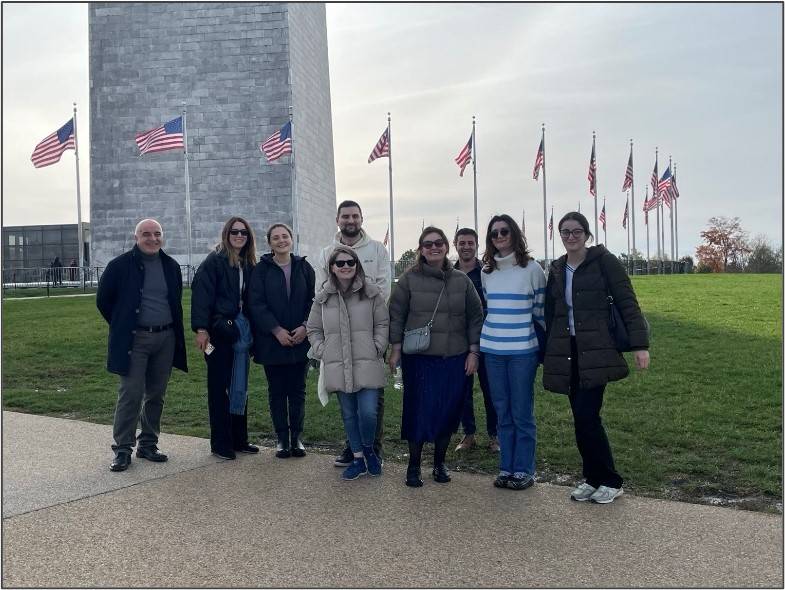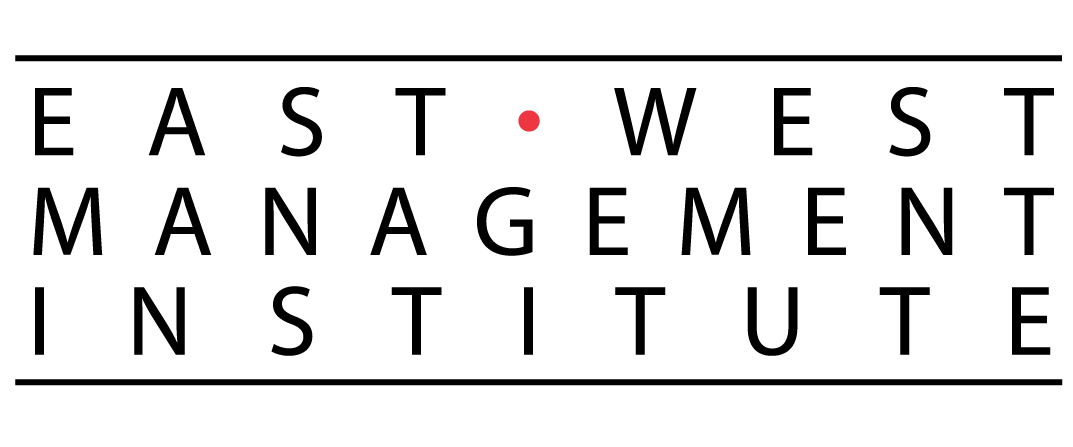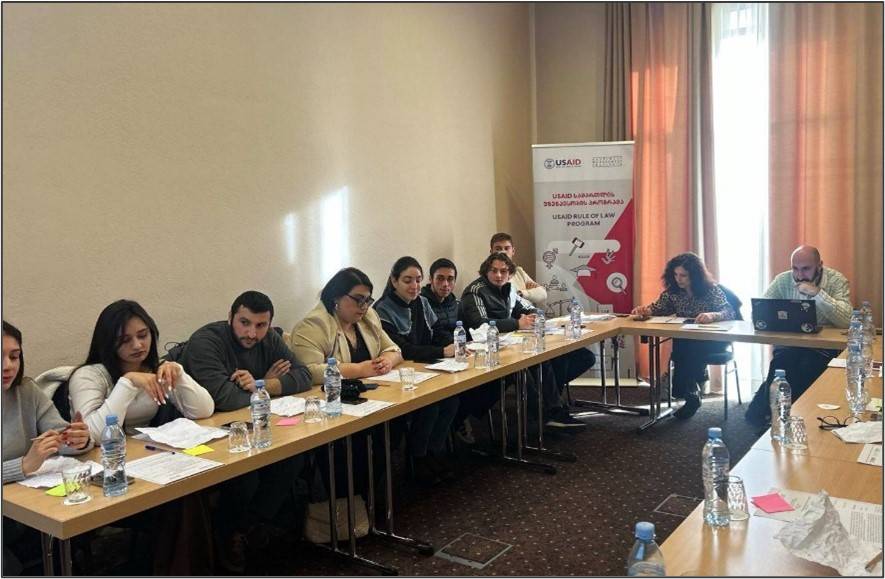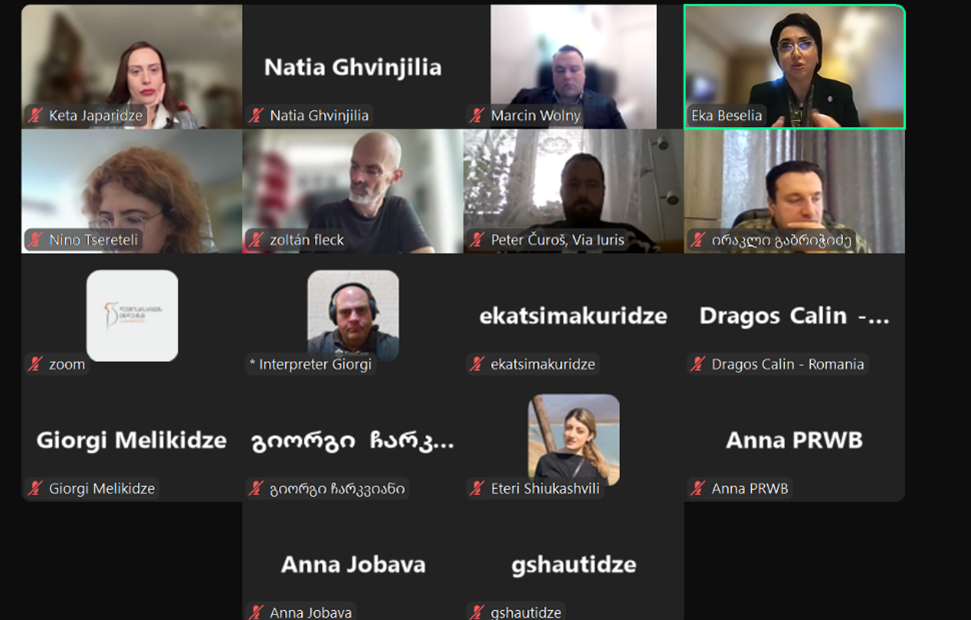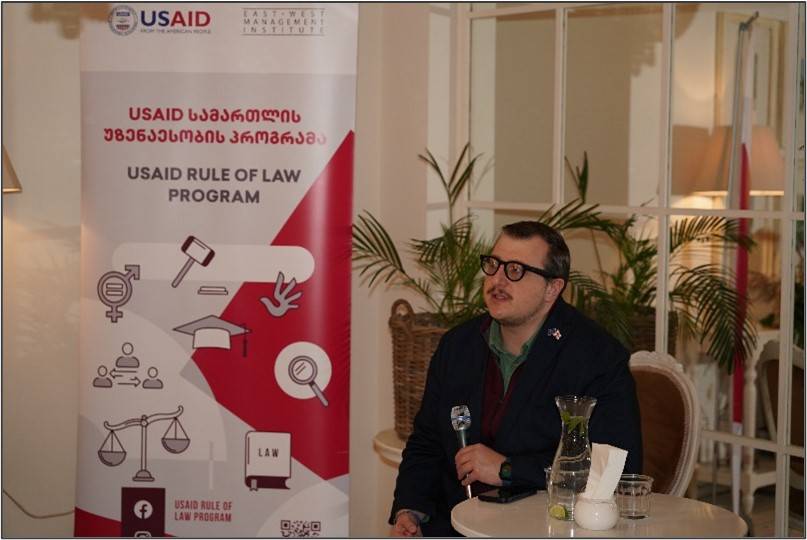Georgian CSO Study Visit to Washington, D.C.
From November 16 to 24, 2024, a nine-day study tour in Washington, D.C., organized by the USAID Rule of Law Program, brought together representatives from nine Georgian civil society organizations (CSOs). This program aimed to deepen participants' understanding of fundamental freedoms, strengthen their capacity in judicial monitoring, and foster collaboration with U.S. organizations.
Participants included representatives from the Georgian Young Lawyers’ Association, Rights Georgia, Institute for Development of Freedom of Information (IDFI), Georgian Democracy Initiative (GDI), International Society for Fair Elections and Democracy (ISFED), Civil Society Foundation, Transparency International Georgia, and Human Rights Center, all of which are Steering Committee members of the Coalition for an Independent and Transparent Judiciary. This Coalition, established in 2011, is a key advocate for judicial reforms in Georgia, conducting research, developing recommendations, and organizing public discussions to enhance the justice system's transparency and accountability.
During the study visit, the Georgian delegation met with a range of organizations focused on judicial independence, human rights, media freedom, anti-corruption, and open government practices. They engaged with the American Bar Association (ABA), Freedom House, the Reporters Committee for Freedom of the Press, Citizens for Responsibility and Ethics in Washington, and Amnesty International. The delegation also met with other institutions such as the Open Government Partnership, Transparency International, the Southern Poverty Law Center, the International Center for Not-for-Profit Law (ICNL), the American Governance Institute, Public Citizen, Fix the Court, the Alliance for Justice, and Americans for Prosperity.
The discussions centered around global trends shaping the judiciary, particularly addressing challenges related to press freedom, the protection of human rights defenders, and their targeting practices in various countries around the world. The meetings also explored the rise of restrictive laws and their implications for democracy, as well as strategies for promoting transparency, accountability, and the strengthening of court integrity through effective advocacy.
During the visit, the organizations had the opportunity to visit the Center for Education and Training for the District of Columbia Courts. Representatives from the Court provided valuable insights into their work, particularly in relation to enhancing court transparency.
The visit also included an exploration of U.S. institutions, with a guided tour of the Supreme Court of the United States and the Library of Congress.
The study trip offered Georgian CSO representatives a practical tool, advocacy strategies, and valuable connections to enhance their ongoing efforts in strengthening judicial transparency, promoting fundamental freedoms, and addressing systemic challenges within Georgia’s justice system.
